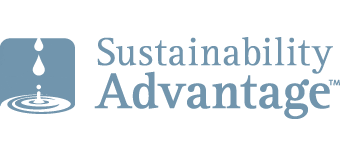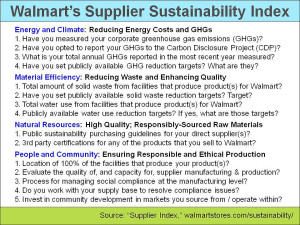More B2C and B2B Revenue From a More Sustainable Brand

People buy from companies they trust. More and more, customers prefer to do business with companies that are doing good things and are responsible. The responsible image of the company builds loyalty with customers who identify with the values of the company – their loyalty is more to the company than to its products.
Even when buying green products, consumers may gravitate more towards buying from companies that best walk-the-talk on sustainability at a corporate level.
A sustainable brand makes a difference in the business-to-consumer (B2C) sector. There are many ways a company can improve its image as a responsible corporate citizen. It can lighten its overall climate change-causing carbon footprint by using less energy from fossil fuels. It can conserve water to ensure the most precious natural resource on the planet available for future generations. It can enforce strict sustainability standards for suppliers. It can be a better steward of its waste. It can “green” its buildings. It can respect employees and support communities.
These are all company-level initiatives. The company is still producing the same products, but the overall company has improved its track record and polished its image as a company that cares about society’s environmental and social challenges. Consumers who share those concerns are more inclined to do business with kindred corporate spirits.
Within the last three years, there is increased evidence that a company’s sustainability image is important in the business-to-business (B2B) sector, as well. Wal-Mart’s bellwether 15-question survey of its 100,000 suppliers in 2010 was a clear signal that a company’s track record on sustainability aspects of their operations makes a difference to their corporate customers.
Suppliers can capitalize on this huge B2B market if their operations and products satisfy their business customers’ sustainability criteria, especially if their competitors’ do not. As a company pays attention to the life-cycle footprints of its products and reduces its social and environmental impacts, it earns the right to be retained as a valued member of its current customers’ sustainable supply chains. If competitors are dropped from their customers’ supply chains because they are sustainability laggards, more sustainable companies can pick up that business.
Endorsements from external environmental agencies help generate beneficial “noise” around the company’s brand image and add momentum to the revenue gains. Gaining B2C and B2B revenue from a more responsible brand is the first of three ways that sustainability strategies bolster revenue. In my next blog, we will look at a second way.
As usual, the above slide are from my Master Slide Set.
Please feel free to add your comments and questions using the Comment link below. For email subscribers, please click here to visit my site and provide feedback.
Bob





Comments are closed.